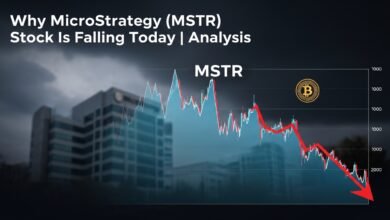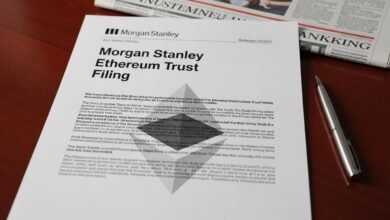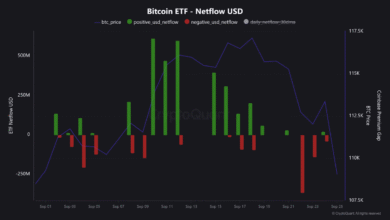
The U.S. tariffs Bitcoin mining government’s new tariffs have spurred a flurry of activity among Bitcoin Miners. The forcing them to acquire mining equipment from Asia before extra taxes take effect. Particularly in the United States. These shifts in trade policy and tense relations between the United States and China.
They have presented a host of logistical and financial difficulties for bitcoin miners. The change coincides with a period when demand for mining hardware has only grown as levies on Chinese-made goods start to have a long-lasting effect.
U.S. Tariffs Impact
The U.S. tariffs Bitcoin mining added a 10% tariff on Chinese goods in February 2025, further aggravating an already strained economic relationship. Added to a 25% levy already in place since 2018, this tariff greatly raised the cost of importing Application-Specific Integrated Circuit (ASIC) miners, the hardware needed for the computational capacity needed for Bitcoin’s mining. Chinese companies like Bitmain, the biggest supplier of mining equipment worldwide, create these ASIC miners mostly. These tariffs are causing miners to suffer a significant increase in equipment costs, which lowers their profitability by itself.

For their mining tools, Chinese producers have long been relied upon by Bitcoin miners; Bitmain leads the way. But now that tariffs are increasing the cost of importing this equipment, miners are having to look for other means of safeguarding their hardware before prices climb much higher. This has resulted in a scramble to locate mining sites in other Asia, including Thailand, Malaysia, and Indonesia, where some corporations are moving activities to evade U.S. tariffs.
Tariff Impact Frenzy
The fear of increased costs is causing a frenzy as Bitcoin miners work to secure as much equipment as possible from Asia. Companies like Luxor Technology, a mining firm based in Seattle, have been moving quickly to expedite shipments of thousands of mining rigs. Luxor, for example, is rushing to import 5,600 rigs from Thailand in a bid to avoid the new tariffs. This rush is also leading to alternative shipping solutions such as chartered flights to ensure that equipment can be delivered before the tariffs take effect.
The pressure is not limited to large mining firms. Smaller operations are also struggling with equipment delays and rising costs. A mining company in Oklahoma, operating a 20-megawatt farm, faces significant delays in receiving its rigs, which are held up in U.S. Customs. Similarly, Bit Digital, a mining firm based in New York, reported delays in receiving 700 machines, disrupting their mining operations and imposing additional costs for storage and late fees.
The situation is proving to be financially burdensome for miners. They are dealing not only with delays in receiving their equipment but also with mounting storage fees as their rigs sit in ports or customs facilities awaiting clearance. Some firms are reporting holding fees that can amount to hundreds of thousands of dollars, depending on the number of rigs involved. This is exacerbating the already narrow profit margins many miners face due to fluctuations in Bitcoin’s price and the declining transaction fees associated with mining rewards.
Shifting Mining Production
Reacting to these difficulties, mining firms are looking at several approaches. Moving manufacturing plants outside of China is one possible fix that has been catching steam. To lessen its reliance on Chinese manufacture, Bitmain, for instance, has declared intentions to construct production plants in Southeast Asia. With this approach, concerned Bitcoin miners—who have been impacted by tariffs—should have a more affordable and consistent alternative.
Apart from exporting their goods abroad, some mining companies are thinking about establishing local manufacturing facilities in the United States to completely evade the effect of taxes. As businesses aim to build a more resilient supply chain less prone to geopolitical disturbances, this trend is starting to change the scene of the mining sector. Eventually, the drive for U.S.-based production will help to lessen reliance on Chinese ASIC miners and cut future tariff risk.
Tariffs and Bitcoin Mining
Tariff introduction has revealed a major weakness in the Bitcoin mining supply chain. For ASIC miners, the sector has long been mostly dependent on Chinese manufacturers; the latest tariffs have underlined the hazards connected with such dependency. Miners are searching for other options as the cost of importing these rigs rises, whether they be through geographical diversity or a redesign of mining operations.

The state of affairs now could act as a wake-up call for the sector. U.S. miners will probably have to focus on local manufacturing capabilities if they are to stay competitive in the worldwide scene. Together with technical developments, the growing complexity of international trade could inspire miners to look for more locally based solutions. This might therefore encourage creativity in the American mining industry and help the mining community to develop fresh business strategies.
Final thoughts
Finally, the most recent tariffs imposed by the American government have caused major disturbance in the Bitcoin mining sector. These tariffs directly lead to the rush to import mining rigs from Asia since miners want to acquire as much equipment as they can before prices climb.
Although this situation is difficult, it could also result in long-term changes in the mining scene, especially with relation to the geographic location of manufacturing of mining hardware. With an eye toward more resilient and varied supply chains, the result of this crisis could change the direction of Bitcoin mining.








